|
Books Should Be Free Loyal Books Free Public Domain Audiobooks & eBook Downloads |
|
|
Books Should Be Free Loyal Books Free Public Domain Audiobooks & eBook Downloads |
|
History Books |
|---|
|
Book type:
Sort by:
View by:
|
By: Robert Michael Ballantyne (1825-1894) | |
|---|---|
 The World of Ice
The World of Ice
| |
 Hunted and Harried
Hunted and Harried
| |
 Martin Rattler
Martin Rattler
| |
 Martin Rattler
Martin Rattler
| |
 Fighting the Whales
Fighting the Whales
| |
 The Wild Man of the West A Tale of the Rocky Mountains
The Wild Man of the West A Tale of the Rocky Mountains
| |
By: John S. C. Abbott (1805-1877) | |
|---|---|
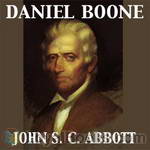 Daniel Boone
Daniel Boone
This is a detailed biography of the life and adventures of Daniel Boone. His accomplishments are brushed over in history classes these days and not given the recognition they deserve. This biography clearly paints a picture of the benevolent person of Daniel Boone as well as the achievements he made in furthering European settlement in America. | |
By: Giorgio Vasari (1511-1574) | |
|---|---|
 Lives of the Most Eminent Painters, Sculptors and Architects
Lives of the Most Eminent Painters, Sculptors and Architects
The Lives of the Most Excellent Italian Painters, Sculptors, and Architects, from Cimabue to Our Times, or Le Vite delle più eccellenti pittori, scultori, ed architettori, as it was originally known in Italian, is a series of artist biographies written by 16th century Italian painter and architect Giorgio Vasari, which is considered "perhaps the most famous, and even today the most- read work of the older literature of art", "some of the Italian Renaissance's most influential writing on art", and "one of the founding texts in art history"... | |
By: Frances M. A. Roe | |
|---|---|
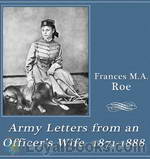 Army Letters from an Officer's Wife, 1871-1888
Army Letters from an Officer's Wife, 1871-1888
"There appeared from the bushes in front of me, and right in the path, two immense gray wolves . . . Rollo saw them and stopped instantly, giving deep sighs, preparing to snort, I knew . . . To give myself courage, I talked to the horse, slowly turning him around . . . when out of the bushes in front of us, there came a third wolf! The situation was not pleasant and without stopping to think, I said ‘Rollo, we must run him down - now do your best’ and taking a firm hold of the bridle, and bracing myself in the saddle, I struck the horse with my whip and gave an awful scream... | |
By: Francis Parkman | |
|---|---|
 Pioneers of France in the New World
Pioneers of France in the New World
Francis Parkman (1823-1893) has been hailed as one of America’s first great historians and as a master of narrative history. Numerous translations have spread the books around the world. The American writer and literary critic Edmund Wilson (1895-1972) in his book O Canada (1965), described Parkman’s France and England in North America in these terms: The clarity, the momentum and the color of the first volumes of Parkman’s narrative are among the most brilliant achievements of the writing of history as an art... | |
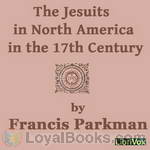 The Jesuits in North America in the 17th Century
The Jesuits in North America in the 17th Century
Parkman has been hailed as one of America's first great historians and as a master of narrative history. Numerous translations have spread the books around the world. The American writer and literary critic Edmund Wilson (1895-1972) in his book "O Canada" (1965), described Parkman’s France and England in North America in these terms: "The clarity, the momentum and the color of the first volumes of Parkman’s narrative are among the most brilliant achievements of the writing of history as an art... | |
 France and England in North America; a Series of Historical Narratives — Part 3
France and England in North America; a Series of Historical Narratives — Part 3
| |
 A Half Century of Conflict - Volume I France and England in North America
A Half Century of Conflict - Volume I France and England in North America
| |
By: Francis Parkman, Jr. (1823-1893) | |
|---|---|
 Montcalm and Wolfe
Montcalm and Wolfe
Francis Parkman (1823-1893) has been hailed as one of America's great nineteenth century historians, along with William Prescott, John Lothrop Motley, George Bancroft, and Henry Adams. He is a master of narrative history and is most known for his "The Oregon Trail" and his seven volume work on the history of the French and English in North America. "Montcalm and Wolfe", the seventh and last volume of the series, covers the conflict between England and France for supremacy in the New World from 1745 to 1884... | |
By: Austin Craig | |
|---|---|
 Lineage, Life and Labors of Jose Rizal
Lineage, Life and Labors of Jose Rizal
LINEAGE LIFE AND LABORS of JOSE RIZAL PHILIPPINE PATRIOTBY AUSTIN CRAIGINTRODUCTION In writing a biography, the author, if he be discriminating, selects, with great care, the salient features of the life story of the one whom he deems worthy of being portrayed as a person possessed of preeminent qualities that make for a character and greatness. Indeed to write biography at all, one should have that nice sense of proportion that makes him instinctively seize upon only those points that do advance his theme... | |
By: Ellen Clacy | |
|---|---|
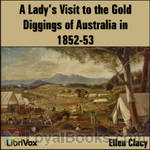 A Lady's Visit to the Gold Diggings of Australia in 1852-53,
A Lady's Visit to the Gold Diggings of Australia in 1852-53,
“If you have visions of a middle-aged parasol-bearing lady smiling sweetly from her carriage as she tours Bendigo think again. In 1852, 20 year old clergyman’s daughter Ellen and her brother boarded ship for Melbourne then set off to walk to Bendigo. Dressed in her blue serge skirt which doubled as nightwear, she camped under a tent made of blankets, had mutton, damper and tea most meals and on arrival lent her hand to gold washing. And seemed to enjoy it !And amongst other things she tells of colonial life , transportation, emigration and other gold-fields.But you will need to listen to hear more about bush-rangers and orphans as well as what she did with her parasol.” | |
By: Thomas Love Peacock (1785-1866) | |
|---|---|
 Maid Marian
Maid Marian
| |
By: Henry L. Williams | |
|---|---|
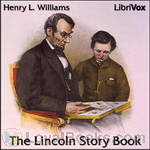 The Lincoln Story Book
The Lincoln Story Book
The Abraham Lincoln Statue at Chicago is accepted as the typical Westerner of the forum, the rostrum, and the tribune, as he stood to be inaugurated under the war-cloud in 1861. But there is another Lincoln as dear to the common people–the Lincoln of happy quotations, the speaker of household words. Instead of the erect, impressive, penetrative platform orator we see a long, gaunt figure, divided between two chairs for comfort, the head bent forward, smiling broadly, the lips curved in laughter, the deep eyes irradiating their caves of wisdom; the story-telling Lincoln, enjoying the enjoyment he gave to others. (from the preface of the book) | |
By: Charles Alexander Eastman (1858-1939) | |
|---|---|
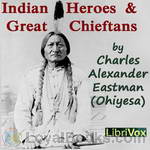 Indian Heroes and Great Chieftans
Indian Heroes and Great Chieftans
EVERY age, every race, has its leaders and heroes. There were over sixty distinct tribes of Indians on this continent, each of which boasted its notable men. The names and deeds of some of these men will live in American history, yet in the true sense they are unknown, because misunderstood. I should like to present some of the greatest chiefs of modern times in the light of the native character and ideals, believing that the American people will gladly do them tardy justice. | |
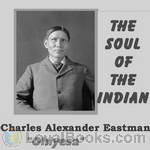 The Soul of the Indian
The Soul of the Indian
"We also have a religion which was given to our forefathers, and has been handed down to us their children. It teaches us to be thankful, to be united, and to love one another! We never quarrel about religion." | |
By: William Westgarth (1815-1889) | |
|---|---|
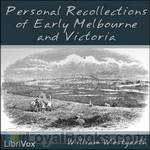 Personal Recollections of Early Melbourne and Victoria
Personal Recollections of Early Melbourne and Victoria
Son of John Westgarth, surveyor-general of customs for Scotland, was born at Edinburgh, in June 1815. He was educated at the high schools at Leith and Edinburgh, and at Dr Bruce’s school at Newcastle-on-Tyne. He then entered the office of G. Young and Company of Leith, who were engaged in the Australian trade, and realizing the possibilities of the new land, decided to emigrate to Australia. He arrived in Melbourne, then a town of three or four thousand inhabitants, in December 1840.When the new colony was constituted Westgarth headed the poll for Melbourne at the election for the legislative council... | |
By: Captain Rees Howell Gronow (1794-1865) | |
|---|---|
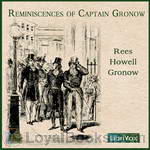 Reminiscences of Captain Gronow
Reminiscences of Captain Gronow
A collection of memoirs about the Peninsular War, the Battle of Waterloo, and society and personalities of Regency London and 19th century Paris, by a sometime Grenadier Guards officer, unsuccessful parliamentarian, and dandy. Gronow displays social attitudes of the day which would now be regarded as unacceptable, but is a clever raconteur who brings to life both the horrors of war and the gaiety of high society. | |
By: Charles Dudley Warner (1829-1900) | |
|---|---|
 The Story of Pocahontas
The Story of Pocahontas
| |
 Captain John Smith
Captain John Smith
| |
 Our Italy
Our Italy
| |
 On Horseback
On Horseback
| |
 Saunterings
Saunterings
| |
 Baddeck, and That Sort of Thing
Baddeck, and That Sort of Thing
| |
By: W. Somerset Maugham (1874-1965) | |
|---|---|
 The Land of The Blessed Virgin; Sketches and Impressions in Andalusia
The Land of The Blessed Virgin; Sketches and Impressions in Andalusia
| |
By: T. F. Thiselton Dyer (1848-1923) | |
|---|---|
 Strange Pages from Family Papers
Strange Pages from Family Papers
“Among other qualities which have been supposed to belong to a dead man’s hand, are its medicinal virtues, in connection with which may be mentioned the famous ‘dead hand,’ which was, in years past, kept at Bryn Hall, Lancashire… Thus the case is related of a woman who, attacked with the smallpox, had this dead hand in bed with her every night for six weeks, and of a poor lad living near Manchester who was touched with it for the cure of scrofulous sores.” Though not all chapters have such gruesome subjects as The Dead Hand, all are full of a curious mixture of superstition and local history that will delight and amuse the modern listener. | |
By: Ben Jonson (1573-1637) | |
|---|---|
 Sejanus: His Fall
Sejanus: His Fall
| |
 The Poetaster
The Poetaster
| |
By: Mohandas Karamchand Gandhi | |
|---|---|
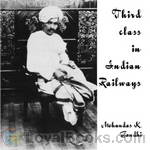 Third Class in Indian Railways
Third Class in Indian Railways
Mohandas Karamchand Gandhi (1869 – 1948) was the pre-eminent political and spiritual leader of India during the Indian independence movement. He was the pioneer of satyagraha — resistance to tyranny through mass civil disobedience. This philosophy was firmly founded upon ahimsa, or total nonviolence, and led India to independence and inspired movements for civil rights and freedom across the world. Gandhi is commonly known around the world as Mahatma Gandhi and in India also as Bapu. He is officially honoured in India as the Father of the Nation; his birthday, 2 October, is commemorated there as Gandhi Jayanti, a national holiday. | |
By: James J. Walsh (1865-1942) | |
|---|---|
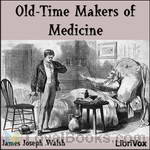 Old-Time Makers of Medicine
Old-Time Makers of Medicine
Dr. Walsh’s Old-Time Makers of Medicine chronicles the history and development of modern medicine from ancient times up to the discovery of America. Throughout this historical guide, Dr. Walsh shows numerous examples of practices thought to be entirely modern that were clearly anticipated hundreds or thousands of years ago. Ancient healers sought to use the body’s natural healing ability, rather than rely exclusively on external cures. Physicians even in ancient times relied on what is now recognized as the placebo effect... | |
By: Dame Shirley (d.1906) | |
|---|---|
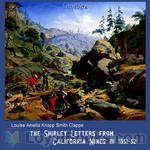 The Shirley Letters from California Mines in 1851-52
The Shirley Letters from California Mines in 1851-52
Louise Amelia Knapp Smith Clappe moved to California from Massachusetts during the Gold Rush of the mid-1800’s. During her travels, Louise was offered the opportunity to write for The Herald about her travel adventures. It was at this point that Louise chose the name “Shirley” as her pen name. Dame Shirley wrote a series of 23 letters to her sister Mary Jane (also known as Molly) in Massachusetts in 1851 and 1852. The “Shirley Letters”, as the collected whole later became known, gave true accounts of life in two gold mining camps on the Feather River in the 1850s... | |
By: Mary Johnston (1870-1936) | |
|---|---|
 To Have And To Hold
To Have And To Hold
When I first started reading this book, I thought it to be a historical romance novel. As I read further, I pondered whether it might be a sea-faring story. Reading still further, I determined it to be an adventure story. Alas, it is all three. To Have And To Hold, written by Mary Johnston was the bestselling novel of 1900. The story takes place in colonial Jamestown during the 1600’s. Captain Ralph Percy, an English soldier turned Virginian explorer buys a wife - little knowing that she is the escaping ward of King James I... | |
 The Long Roll
The Long Roll
| |
 Pioneers of the Old South: a chronicle of English colonial beginnings
Pioneers of the Old South: a chronicle of English colonial beginnings
| |
 Prisoners of Hope A Tale of Colonial Virginia
Prisoners of Hope A Tale of Colonial Virginia
| |
By: Enos A. Mills (1870-1922) | |
|---|---|
 Wild Life on the Rockies
Wild Life on the Rockies
“This book contains the record of a few of the many happy days and novel experiences which I have had in the wilds. For more than twenty years it has been my good fortune to live most of the time with nature, on the mountains of the West. I have made scores of long exploring rambles over the mountains in every season of the year, a nature-lover charmed with the birds and the trees. On my later excursions I have gone alone and without firearms. During three succeeding winters, in which I was a Government Experiment Officer and called the “State Snow Observer,” I scaled many of the higher peaks of the Rockies and made many studies on the upper slopes of these mountains.” | |
By: William Bradford (1590-1657) | |
|---|---|
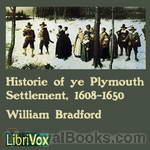 Bradford's History of the Plymouth Settlement
Bradford's History of the Plymouth Settlement
The journal of William Bradford, who served five terms as governor of the Plymouth colony, is an indispensable document of the events of early American history. His eyewitness account includes the stories of the Pilgrims’ sojourn in the Netherlands, the voyage of the Mayflower, the hardships of the New World, relations with the Indians, and the colony’s growth from an endangered enterprise to a thriving city. This edition of Bradford’s Of Plimoth Plantation presents the text in language made more accessible to the modern reader | |
 Bradford's History of 'Plimoth Plantation' From the Original Manuscript. With a Report of the Proceedings Incident to the Return of the Manuscript to Massachusetts
Bradford's History of 'Plimoth Plantation' From the Original Manuscript. With a Report of the Proceedings Incident to the Return of the Manuscript to Massachusetts
| |
By: George Hamilton | |
|---|---|
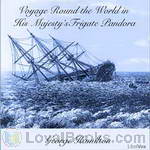 Voyage Round the World in His Majesty's Frigate Pandora
Voyage Round the World in His Majesty's Frigate Pandora
George Hamilton was the surgeon assigned to the frigate Pandora. The British Admiralty ordered the ship to the Pacific to arrest the Bounty mutineers and bring them back to England for trial. The commander, Captain Edward Edwards, also was ordered to chart the passage between Australia and New Guinea. While Edwards managed to arrest the mutineers still on Tahiti, he sank the Pandora on a reef near Australia. Hamilton tells this story and also the story of the crew’s fate after the Pandora sank. | |
By: United States | |
|---|---|
 United States Declaration of Independence (HTML)
United States Declaration of Independence (HTML)
| |
By: George Pearson | |
|---|---|
 The Escape of a Princess Pat
The Escape of a Princess Pat
Being the full account of the capture and fifteen months’ imprisonment of Corporal Edwards, of the Princess Patricia’s Canadian Light Infantry, and his final escape from Germany into Holland. | |
By: Titus Livius (c55BC - c17AD) | |
|---|---|
 From the Foundation of the City
From the Foundation of the City
Ab urbe condita, is a monumental history of ancient Rome written in the Latin language by Titus Livius(Livy), an ancient Roman historian. The work covers the time from the stories of Aeneas, the earliest legendary period from before the city's founding in c. 753 BC, to Livy's own times in the reign of the emperor, Augustus. The last year covered by Livy is 745 AUC, or 9 BC, the death of Drusus. About 25% of the work survives.Livy's History of Rome was in demand from the publication of the first packet... | |
By: George Alfred Henty (1832-1902) | |
|---|---|
 By Pike and Dyke
By Pike and Dyke
It is the 1570's, and the people of the Netherlands live in terror under the cruel dominion of Spain. Though many long to be free of Spanish tyranny, efforts at rebellion are failing, and allies are nowhere to be found. Edward “Ned” Martin, son of an English captain and a Dutch lady, is thrust into the conflict when he resolves to help his mother’s people and avenge his murdered relatives. Entering the service of the revolutionary leader William the Silent, Prince of Orange, Ned is called upon to carry out dangerous secret missions deep within occupied territory... | |
By: Lyndon Orr pseudonym of Harry Thurston Peck (1856-1914) | |
|---|---|
 Famous Affinities of History: The Romance of Devotion
Famous Affinities of History: The Romance of Devotion
"Famous Affinities of History" is a book of passion-filled accounts of the most famous love affairs of history. The stories of Cleopatra, Victor Hugo, Honore de Balzac, Jonathan Swift, Charles Dickens, Karl Marx, Percy Bysshe Shelley, Byron, George Sand and other famous people of all times (even those of royal blood are not spared), are dealt with in Lyndon Orr's own interesting and suspenseful style. Written in four volumes, this book makes for an informative, interesting and thoroughly enjoyable read, giving us an insight into the lives and lifestyles of various popular figures of history. | |
By: Talbot Mundy (1879 -1940) | |
|---|---|
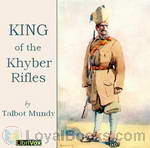 King of the Khyber Rifles
King of the Khyber Rifles
Athelstan King is a British Secret Agent stationed in India at the beginning of WWI. He is attached to the Khyber Rifles regiment as a cover, but his real job is to prevent a holy war. "To stop a holy war single-handed would be rather like stopping the wind--possibly easy enough, if one knew the way." King is ordered to work with a mysterious and powerful Eastern woman, Yasmini. Can King afford to trust her? Can he afford not to? (Introduction by Brett W. Downey) | |
By: Walter Pater | |
|---|---|
 Appreciations, with an Essay on Style
Appreciations, with an Essay on Style
Appreciations, with an Essay on Style, is a collection of Walter Pater's previously-published essays on literature. The collection was well received by public and critic since its first edition, in 1889. The volume includes an appraisal of the poems of Dante Gabriel Rossetti, first printed in 1883, a few months after Rossetti's death; an essay on Thomas Browne, whose Baroque style Pater admired; and a discussion of Measure for Measure, one of Pater's most often reprinted pieces. The second edition, published in 1890, had a few modifications, and is the basis for all other editions of the book. | |
 Greek Studies: a Series of Essays
Greek Studies: a Series of Essays
| |
 Essays from 'The Guardian'
Essays from 'The Guardian'
| |
By: John Munro (1849-1930) | |
|---|---|
 The Story of Electricity
The Story of Electricity
In the book's preface, the author writes: "Let anyone stop to consider how he individually would be affected if all electrical service were suddenly to cease, and he cannot fail to appreciate the claims of electricity to attentive study."In these days when we take for granted all kinds of technology - communications, entertainment, medical, military, industrial and domestic - it is interesting to learn what progress had been made in the fields of electricity and technology by the beginning of the 20th century... | |
 Heroes of the Telegraph
Heroes of the Telegraph
| |